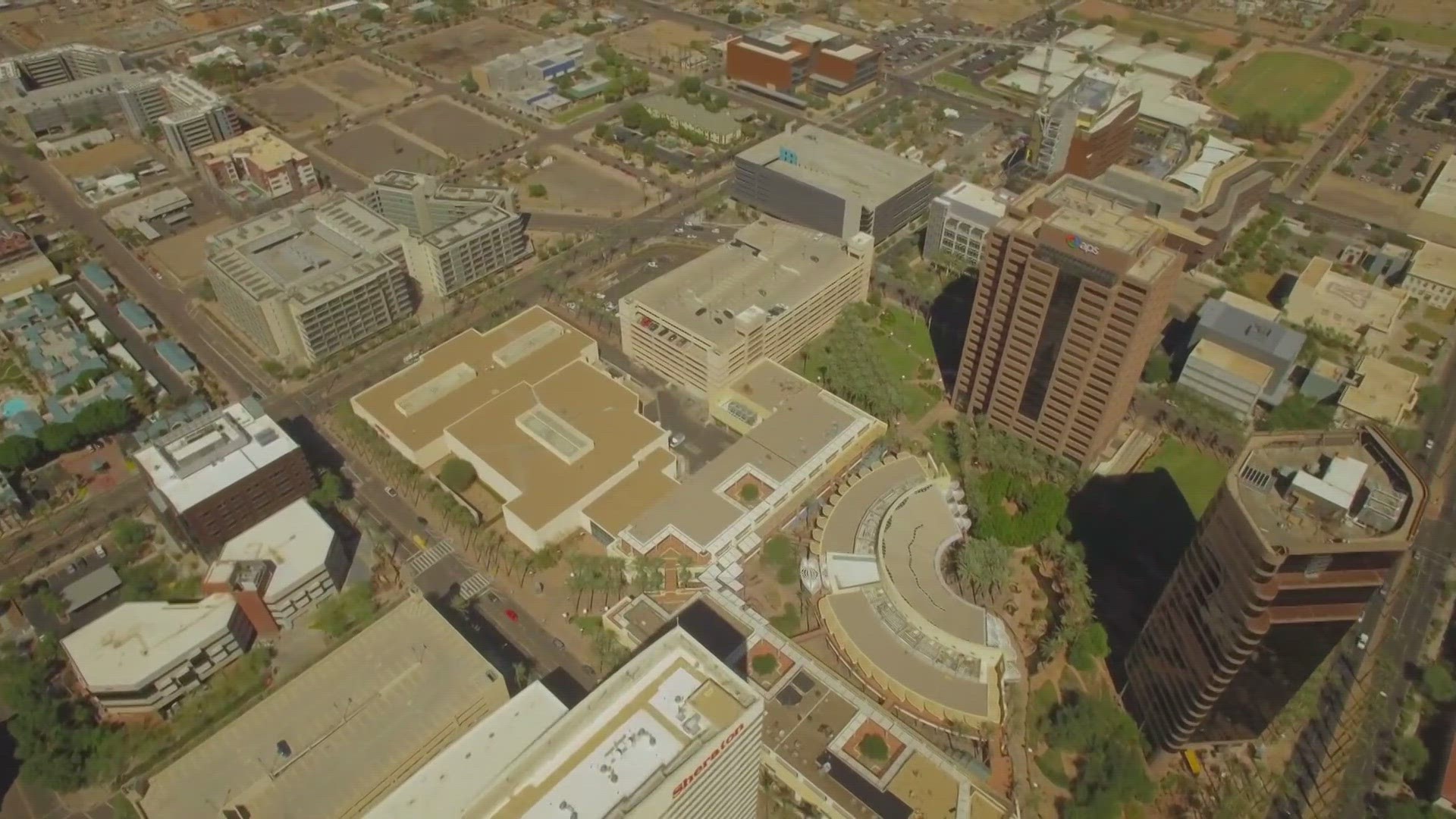PHOENIX — A new report by the Federal Reserve Bank of San Francisco finds extreme heat in Phoenix cools down the economy.
Last summer was the hottest on record, with 54 days of 110-degree heat and more than 600 deaths from heat-related illnesses.
The report comes as Phoenix City Council passed further protections for contracted employees in the heat.
"I have worked on plenty of job sites in Phoenix in which workers were asked to complete projects in 110-plus weather with no access to clean, cool water, shade or a place to rest," Jason Sangster, business manager for Ironworkers Local 75, said during public comment at Tuesday's city council meeting.
The protections will require city contractors with outdoor employees to have access to cool drinking water, shade and air conditioning inside vehicles with closed cabs.
The report by the Federal Reserve found that 20% of the workforce in Phoenix works outside with little access to air conditioning, noting productivity goes down in the heat.
"Please know that this ordinance is going to improve the quality of life for many of our brothers, sisters that work outdoors, especially during this summer," Sangster said.
The heat, the report finds, also disproportionately affects workers of color.
Chicanos Por La Causa's director of workforce solutions, Dee Pinkston, said they're working to get young people and adults into career paths out of the heat.
"You don't have to take a job where you think you might have to go out in the heat, we can skill you up. We can do it for free. It's short term, you can receive an industry-recognized credential, and we have these wonderful employer partners, such as Honeywell Aerospace there to help them get their career started," Pinkston said.
In analyzing FEMA data, the report said heat waves cost Arizona $6 million, two-thirds of that related to death and injury from the heat.
When looking at the report, Danny Seiden, president of the Arizona Chamber of Commerce, disagrees with the Fed's assessment that the heat has a cooling effect on Arizona's economy.
"Coming into 2020, which is the last time we have those numbers right now, the amount of revenue from tourism, visitors, retail all went up even through a hot summer and we'll see what it looks like in '23 as well," Seiden said.
Seiden said businesses a part of the chamber do work to protect workers.
"Most of our companies do that, they allow a lot of remote work, they change the hours and make it safer for their workers go out of their way to provide a safe working environment. And we get through it," Seiden said.
Getting through the summer, as Arizona State Climatologist, Dr. Erinanne Saffell said is getting tougher with warming nighttime temperatures.
"We look at the last 30 days, the daytime temperatures yet are getting hotter. But we're also seeing the nighttime temperatures getting much hotter. So three times hotter at the trend than what we're seeing daytime temperatures," Saffell said.

